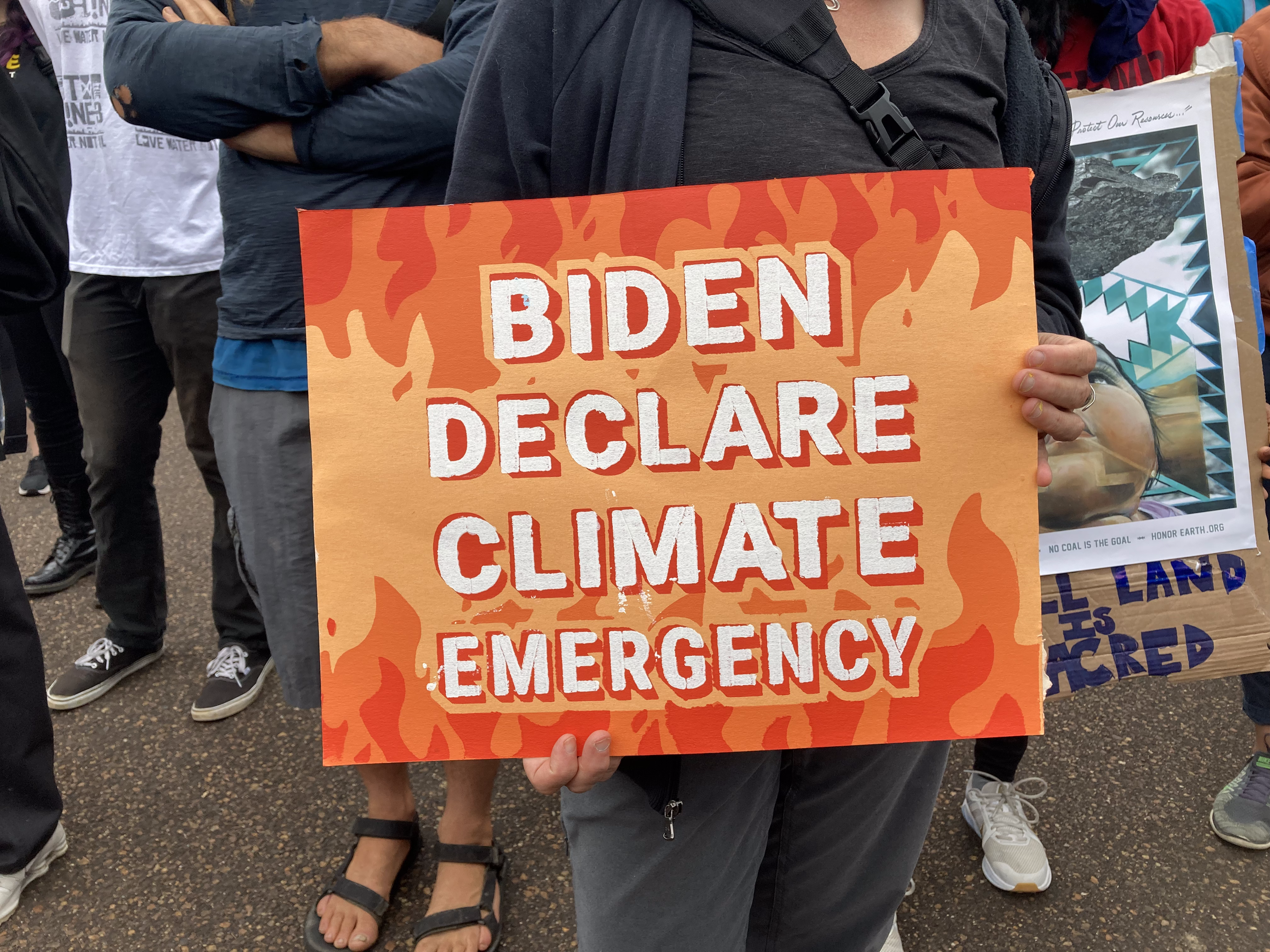Defending Community Resistance to Climate Destruction
Last week, thousands of members of Indigenous and frontline communities, climate activists, and concerned citizens gathered in Washington, DC for “People vs. Fossil Fuels” – a week of demonstrations to demand real action by the Biden administration to protect communities and fight climate change. Hundreds of people were arrested for engaging in acts of civil disobedience at the White House and other locations around the city. Such direct action by climate defenders has become increasingly necessary – and risky. As the world moves towards a future without fossil fuels, it has become abundantly clear that the fossil fuel industry – and other climate-wrecking industries – are not going to go down easily or responsibly. They, and their collaborators in some governments, use every tactic at their disposal, including corruption, criminalization, intimidation, even torture, to push forward fossil fuel projects opposed by local communities. We see the fossil fuel industry attempt to silence climate defenders globally – from the mountains of Thailand to the Amazon rainforest to the headwaters of the Mississippi in northern Minnesota.

A Global Wave of Repression
The right of frontline communities worldwide to say no to these acts of climate destruction is increasingly under threat. Black, Brown, and Indigenous communities are disproportionately affected by fossil fuel extraction. When they oppose fossil fuel projects, they often face corporations and governments that use threatening tactics to silence them.
Take, for example, one community in Omkoi, Thailand, where a Thai mining company is trying to build a new coal mine in the territory of Karen Indigenous peoples–against their consent. The company is blocking community participation in the project in order to advance its destructive agenda. As world leaders prepare to meet in Scotland next month for the COP26 climate negotiations, protecting climate defenders must be their top priority. In particular, the U.S. delegation – led by Special Presidential Envoy for Climate Change John Kerry – should push other countries to commit to enacting policies that would allow activists and community leaders to carry out their critical work opposing fossil fuels without fear of repression or violence.
It’s hard to overstate the importance of frontline community defense movements to the global fight against climate change. These communities create pressure that makes it increasingly difficult for fossil fuel companies and forest destroyers to operate. A new report from the Indigenous Environmental Network estimates that “Indigenous resistance has stopped or delayed greenhouse gas pollution equivalent to at least 25 percent of annual U.S. and Canadian emissions.” Ultimately, their amplified voices are what will force governments to take the actions necessary to transition the world towards a more sustainable future.
It’s no surprise, then, that companies and some governments are intensifying efforts to silence these voices in order to maintain the fossil fuel-soaked status quo. The UN Special Rapporteur on Freedom of Association and Assembly documented this situation in a recent report, noting that “…as more people around the world organize to defend their lands and demand a green future, violent repression has also increased.”
Using torture to propel fossil fuel projects
The recent repression of Indigenous water protectors and their allies at the Line 3 tar sands pipeline in northern Minnesota is a particularly shocking example of the lengths the dying fossil fuel industry will go to push its projects forward. There, police used rubber bullets and pain compliance – a form of torture – against pipeline protestors. Enbridge, the Canadian company responsible for Line 3, set up an escrow account to reimburse the police for their expenses at the project. In essence, this financial agreement incentivizes police to prioritize the interests of a private company over the rights of local communities. Despite these abuses and the climate damage the project will cause, the Biden administration has refused to cancel Line 3 – a blatant contradiction that could undermine the U.S. government’s leadership in Glasgow at COP26.
In the Amazon, illegal logging and mining mafias are threatening, criminalizing, and killing Indigenous forest defenders in record numbers. This is happening as the Amazon has shifted from being the world’s largest carbon sink to a net carbon emitter due to deforestation driven by agribusiness.
Defending the frontline communities
Defending the rights of frontline communities and climate defenders who are fighting to save our planet must be an integral part of the global effort to combat climate change. Recognition of this point is a key objective of EarthRights’ new campaign, Frontlines of Climate Justice. Over the next year, we will work with allied organizations and supporters worldwide to highlight cases like those described here and push corporations and governments to take action. These include ensuring that no projects go forward on Indigenous territories without their consent, blocking companies from using public police forces to harass and abuse protestors, and taking a zero-tolerance stance on reprisals of any form against opponents of fossil fuel projects.
It also includes fully respecting the rights of communities to decide for themselves what type of development is most appropriate for them without being forced to accept projects that contribute to climate destruction. To launch our campaign, we are calling on the U.S. government’s delegation at COP26, and John Kerry in particular, to push for commitments by governments to protect climate defenders and end the use of repressive tactics. You can take action with us here.
In Glasgow, negotiators will focus on issues such as reducing CO2 emissions, funding adaptations to climate change and taking aggressive actions to slow global temperature rise, as called for in the latest IPCC report. If global powers want to meaningfully address the climate crisis, they must give equal attention to protecting the rights of frontline communities and climate defenders resisting climate destruction.






